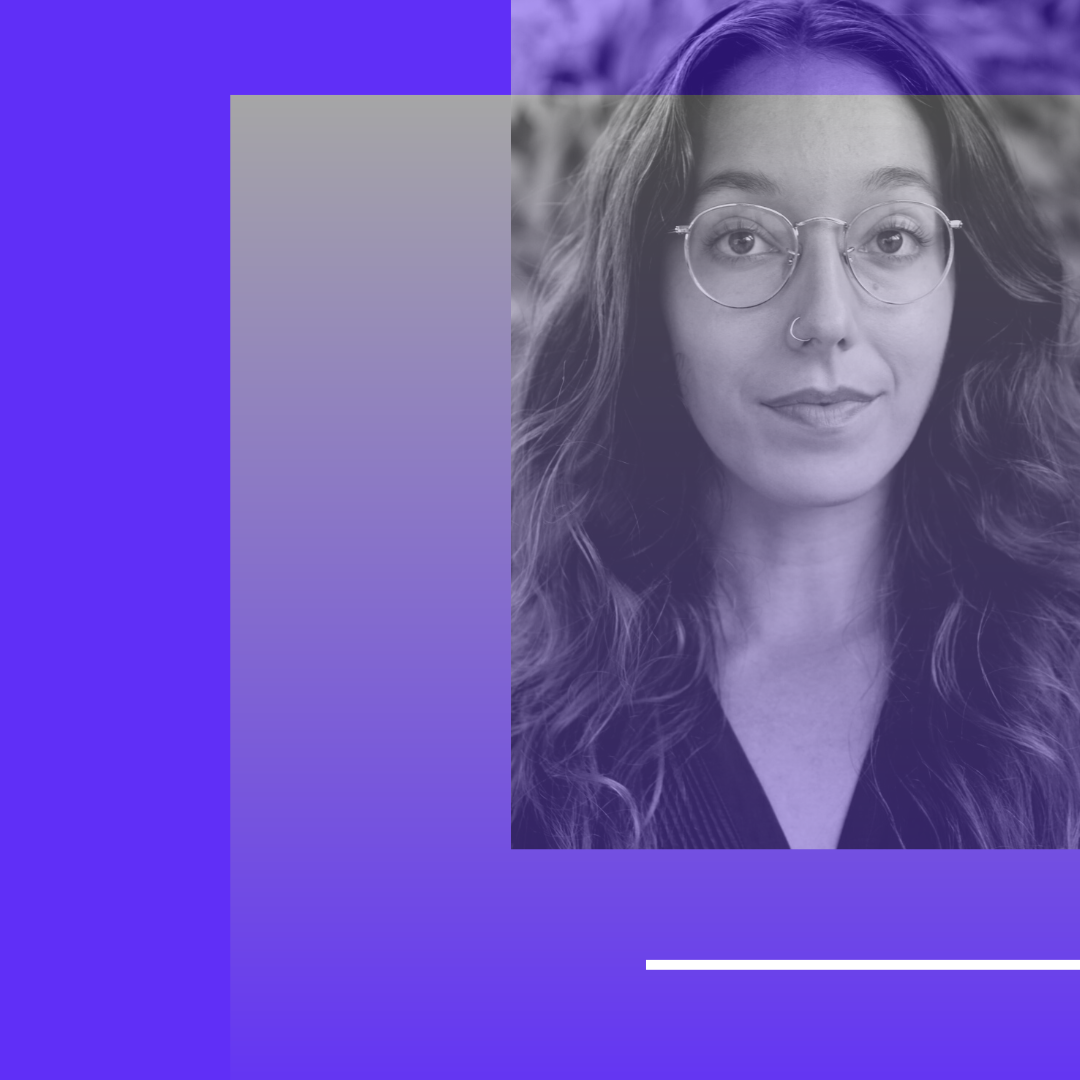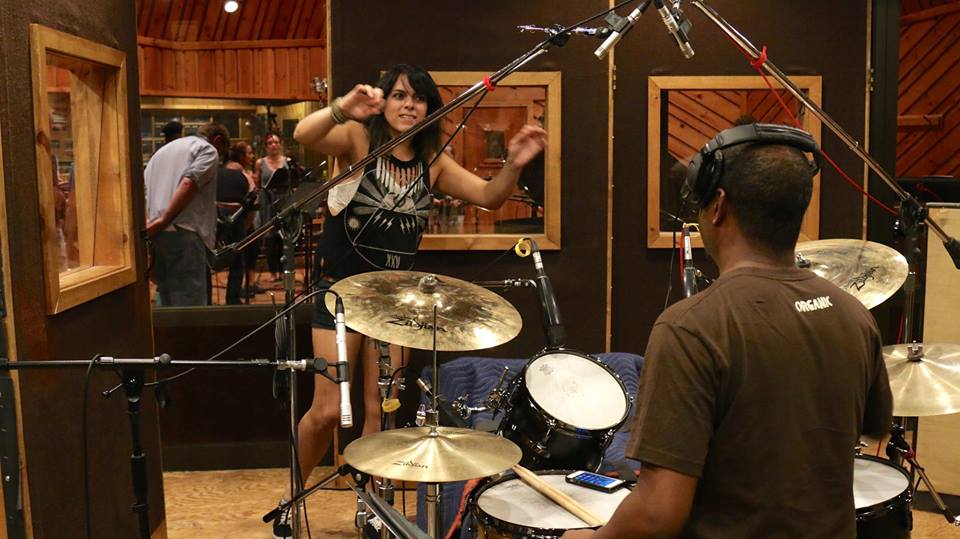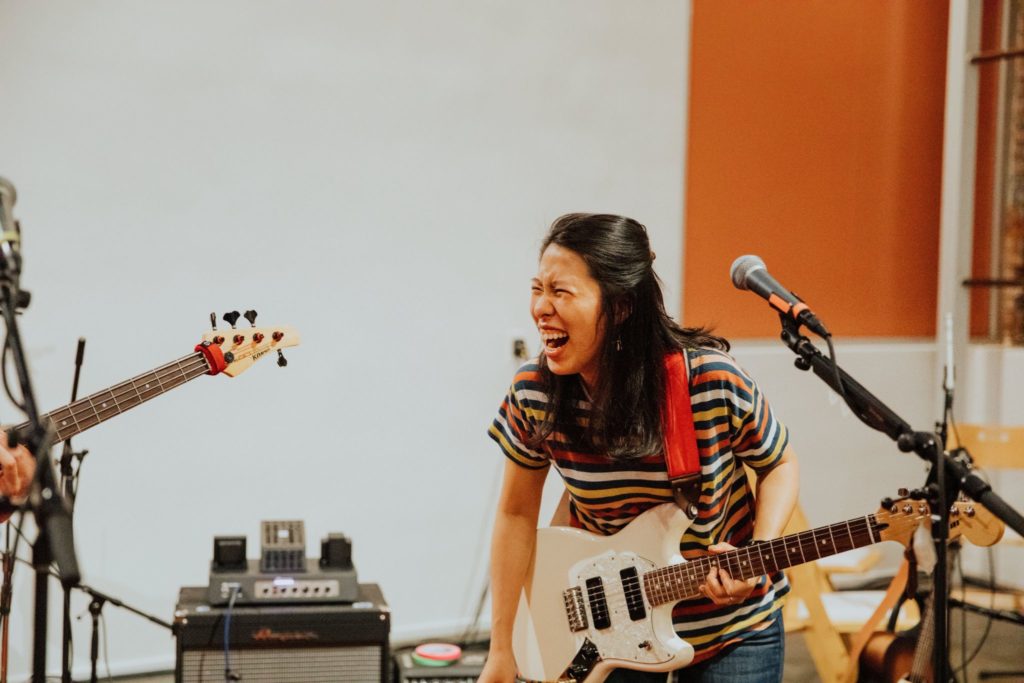When I began blogging for SoundGirls in January of 2022, I had hoped to interview various audio professionals from marginalized genders, but none more so than Greta Stromquist. We met at WAMCon Los Angeles 2019. We were both early to the conference at Walt Disney Studios, struck up a conversation that morning, and reconnected throughout the day. Whereas I was new to the very idea of recording and mixing my own projects, Greta was established, having already developed a partnership with mentors to record audiobooks. We exchanged numbers and stayed in touch. And when I really needed help in the early months of the pandemic, she agreed to edit the episodes of a Wilco fan podcast I co-host with Mary MacLane Mellas. Without her, it may never have been released. And so it is with gratitude and admiration that I introduce you to Greta Stromquist in my last SoundGirls blogging venture for the foreseeable future. Cherish the friends you make in audio. Now meet one of mine.
You got started in audio through the support of mentors. Tell us about that. At the time, you were working as a barista, right?
Yes. Yeah, I was working in a coffee shop. I feel like I got into audio a little bit unconventionally. When I met my mentors, they sat me down and introduced me to the world of ProTools and post-production. Then I spent a few years working with them on audiobooks, recording people for audiobooks. I’d be working [at the coffee shop] then I would go to the studio and work with them. It was honestly kind of like going to school. It was a special time when I got to be creative and have the support to do it.
You always hear about people forming these relationships with regulars at their workplace, and this seems like the most notable example of that that I have ever heard, where it literally changed the direction of your whole life.
It truly did. I think about that often. They’re both super generous with their knowledge and continue to be incredibly supportive. I’m not sure what I would [have been] doing right now, but it definitely wouldn’t have been audio, because there’s a lot of gatekeeping. Unless you go to school or know somebody, it is something that you really don’t get access to.
How does your art background influence your craft as a dialogue editor?
I always have had so many different interests, whether it’s painting, drawing, taking pictures or editing videos. All your skills from everywhere, even if they seem unrelated, they do come together.
What are some of your favorite podcasts? And in what ways do they influence your own work?
Anything public radio storytelling. Like Code Switch. It’s a genius way of melding in the human experience with incredibly thoughtful sound design and scoring of the episode that just draws you in. You just come into your own little world. It’s something I grew up listening to that’s always been something I’ve really enjoyed.
Describe the arts community you belong to.
I think in LA it’s been hard for me to feel a part of any community, but I will say I’m endlessly inspired by the individuals I know who pave the way for themselves to make the art that is important to them. For me, it’s been hard to find community, group-wise, but the friends that I do have are incredibly creative, and I draw inspiration from that.
Which project has challenged you the most? And how did it alter your process moving forward?
For the past year and a half, I’ve worked on an audio-reality podcast series. It was my first time working on a large-scale project where we were dealing with hundreds of hours of tape and I had to keep everything organized. I also got to work a bit as a story editor, and it was one of those jobs that I didn’t think I was qualified to do. I was shocked to even get an interview. It’s very interesting being on the other side of it, thinking back [to] how anxious I was for the first few months and having constant impostor syndrome. But now I feel proud of the work I did, like I’ve [become] a better editor and walked away with excellent organization skills. I think the biggest challenge of it, though, was honestly just believing in myself. It’s really cheesy and stupid, but that was really the hard part.
What are your go-to tools for dialogue editing?
I carry with me what my mentors have taught me. I think a lot of it is just being okay with how the recording itself sounds. Sometimes less really is more. There are all the really cool plugins that serve their purpose, and I can make stuff sound really crisp and clean. But yeah, all the little things that give it life: that’s how it sounds. That’s how it is.
What advice would you give others who wish to become dialog editors? And are you someone who would be interested in mentoring someone down the road?
Yeah! Imposter syndrome is like, “I can’t mentor someone, I don’t know enough,” but I actually do really enjoy teaching. Inevitably, when you’re teaching someone something, you’re learning, too.
“What advice…” If you’re interested in audio, or in the editing world, start small, recording something and bringing it into whatever DAW or NLE you have, playing with it, editing it, and trying plugins. Just go from there. Start small, then bug anyone and everyone you know. Reach out to anybody you want to talk to.
What goals do you have for yourself in the coming year?
I definitely want to keep working on projects that challenge me. I have enjoyed working in the podcast world, but I’m still drawn to film and TV. I would love to get my foot in the door. There’s [an] overlay of skills, for sure. I’ve had a taste of story editing and loved it, however, re-recording mixing and ADR is something I would love to explore. I am open and excited to new opportunities and to see where my skills will take me next.
Thank you, Greta, and all of you SoundGirls readers. Now go make some noise (and/or record some).



